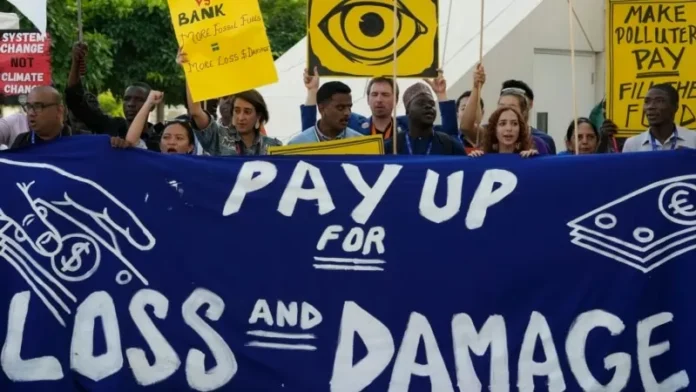The Trump administration has recently made a decision that has caused widespread concern among climate analysts and environmental activists. In a letter sent last week, the U.S. Treasury Department announced that the U.S. will be pulling out of the landmark international climate Loss and Damage Fund. This move has been met with criticism and disappointment, as it will have a significant impact on the fight against climate change and the support for vulnerable countries affected by its consequences.
According to a Treasury official, the decision to withdraw from the fund is in line with President Trump’s Executive Order on Putting America First in International Environmental Agreements. This order has already seen the elimination or reduction of funding for various environmental initiatives, including climate change and foreign aid. In addition, the U.S. has also started the process of withdrawing from the historic 2015 Paris climate agreement.
The Loss and Damage Fund was created in 2022 with the goal of providing compensation to developing countries that have been severely impacted by the effects of climate change. This includes extreme weather events such as storms, heatwaves, and droughts, which have been linked to the burning of fossil fuels. At the time of its creation, then-President Joe Biden pledged that the U.S. would contribute $17.5 million to the fund.
However, the recent decision to pull out of the fund has been met with disappointment and concern by climate experts and activists. Mohamed Adow, founder of Power Shift Africa, stated that it is a “great shame” to see the U.S. going back on its promises. He also emphasized that this move will result in great suffering for some of the poorest and most vulnerable people in the world, who have already contributed the least to the global climate emergency.
The U.S. is not the only country to have pledged funds to the Loss and Damage Fund. In fact, a dozen countries and the European Union have pledged more than the U.S., with Italy and France committing the largest amounts at $104 million each. As of January, the fund had a total of $741.42 million in pledges, according to the United Nations.
For many developing nations, the creation of the fund was seen as a step towards environmental justice. It was a way for richer nations, who have historically been the biggest emitters of carbon dioxide, to take responsibility for the damage caused by their actions. However, this idea was initially met with resistance from the U.S. and other wealthy nations, who argued that the fund should not be seen as reparations.
It was not until 2022, after three decades of negotiations, that the fund was finally established. At the time, Seve Paeniu, the finance minister of Tuvalu, stated that it was a victory for climate justice and a response to the call of millions of people across the world who are suffering from the impacts of climate change.
The decision to withdraw from the Loss and Damage Fund is a significant setback in the fight against climate change. It not only goes against the promises made by the U.S., but it also undermines the efforts of other nations to address the urgent issue of environmental justice. The consequences of this decision will be felt by the most vulnerable populations, who are already bearing the brunt of climate change.
As we face the realities of the climate crisis, it is more important than ever for nations to work together and take responsibility for their actions. The U.S. has a crucial role to play in this fight, as one of the biggest emitters of greenhouse gases. It is our responsibility to support vulnerable countries and to take concrete actions towards reducing our carbon footprint.
In conclusion, the Trump administration’s decision to withdraw from the Loss and Damage Fund is a cause for concern and disappointment. It sends a message that the U.S. is not willing to take responsibility for its role in the global climate crisis and undermines the efforts of other nations to address environmental justice. It is our hope that the U.S. will reconsider this decision and recommit to taking action towards a more sustainable future for all.

